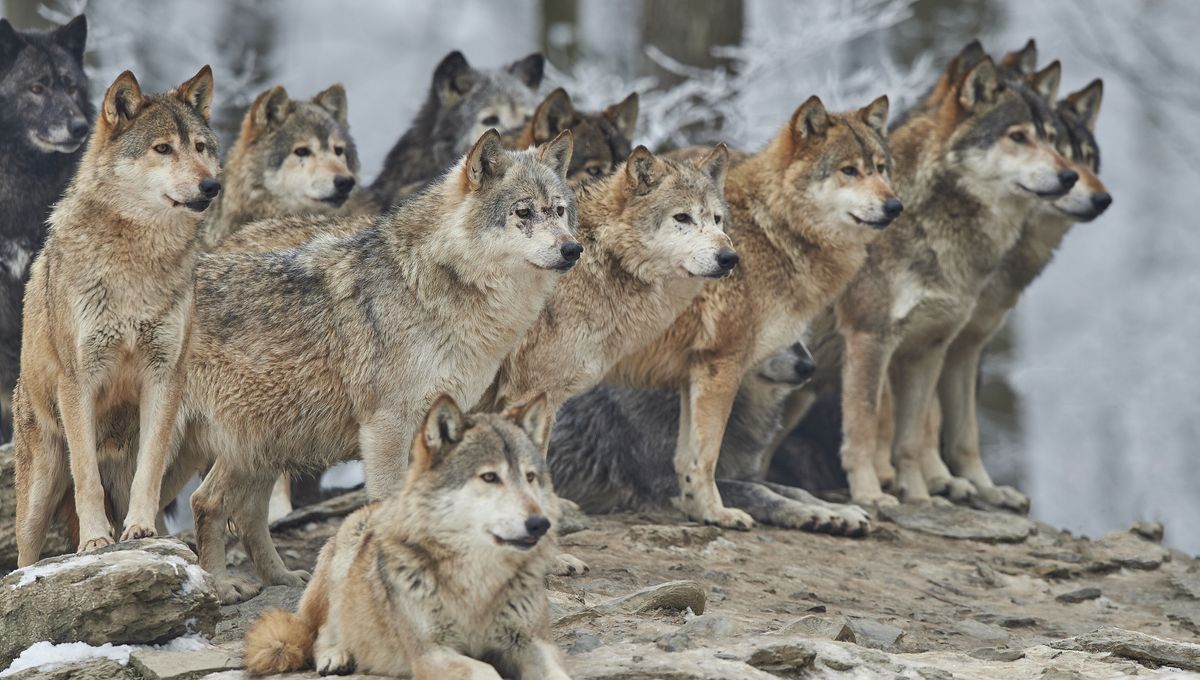
Transforming an untamed wolf into an obedient sausage dog or clingy chihuahua requires some serious time and genetic alchemy, yet new research suggests the process may have been simpler than you’d think, unhindered by the factor of time. According to the study authors, ancient wolves that craved the benefits of human companionship would have had time to essentially domesticate themselves, essentially becoming dogs via natural selection with minimal interference from us.
ADVERTISEMENT GO AD FREE
It’s thought that dogs emerged from their howling ancestors over a period of around 15,000 years, which is actually pretty speedy for speciation – whereby a completely new species arises from an older one – to occur. The prevailing view, therefore, is that the doggification process was accelerated by artificial selection, as humans deliberately mated the tamest wolves together in order to breed friendlier pooches as quickly as possible.
A competing idea, however, states that some naturally tamer wolves may have started hanging around human campsites of their own accord, hoping to scavenge on food scraps. Known as the “proto-domestication hypothesis”, this theory posits that these lurkers would have naturally become isolated from less human-tolerant wolves, and would therefore have ended up mating with one another.
Without human intervention, though, it’s unclear if these friendlier wolves could have naturally bred themselves into an entirely new species in less than 15,000 years, which is why the proto-domestication hypothesis has never been fully accepted.
To determine whether the idea checks out, the authors of the new study used agent-based mathematical models to simulate the evolutionary development of wolves under different scenarios. For instance, they ran simulations in which tamer wolves naturally mated with other tamer wolves, and simulations where they continued breeding with pack members that weren’t up for hanging around human campfires begging for scraps.
Overall, speciation occurred within 15,000 years in 74.2 percent of models that included this preference for mating with other chill wolves, but did not occur in any of the models without mate preference. On average, it took just 8,030 years for these wolves to turn themselves into dogs, simply by loitering around humans and breeding with other wolves doing the same thing.
“Our model allows the proto-domestication hypothesis to overcome the time constraint objection only if ancient wolves more often selected to mate with wolves with a similar tolerance (or lack of tolerance) for humans,” write the study authors. “If this preference existed among the ancient wolf population, it implies that human tolerance could be a ‘magic trait’ in that it contributed both to ecological selection and to non-random mating,” they add.
ADVERTISEMENT GO AD FREE
Despite this, the researchers concede that their results “cannot prove nor disprove the cause of early wolf domestication,” as it’s still entirely possible that artificial selection may have driven this process. They also point out that prehistoric communities may not have wanted wolves hanging around their campfires, and could have shooed them away to ensure none of their scraps were taken – in which case the entire proto-domestication idea falls flat.
What the findings do suggest, however, is that “the proto-domestication hypothesis cannot be rejected on the basis of time constraints.” In other words, wolves definitely did have enough time to turn themselves into dogs all by themselves.
The study has been published in the journal Proceedings of the Royal Society B: Biological Sciences.
Source Link: Prehistoric Wolves May Have Willingly Turned Themselves Into Dogs